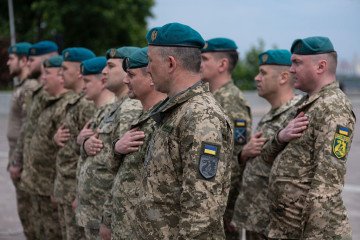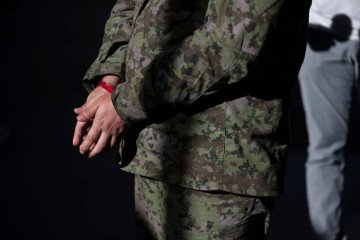- Category
- Latest news
Putin Calls for Total Destruction of Ukrainian Statehood, Rejects Ceasefire in Meeting with Orbán
Russian self-proclaimed President Vladimir Putin’s recent statements indicate a firm stance on ending the war in Ukraine through the complete destruction of Ukrainian statehood and identity, a new report indicates. According to analysts at ISW, Putin’s meeting with Hungarian Prime Minister Viktor Orbán on July 5 was used to reject ceasefire negotiations and express support for a “final” resolution to the conflict that aligns with his goal of erasing Ukrainian statehood.
During a press conference with Orbán, Putin outright dismissed any temporary ceasefire agreement through negotiations. He emphasized Russia’s preference for a “full” and “final” end to the conflict rather than allowing Ukraine to regroup or rearm. Putin’s demands include significant territorial concessions and military capitulation from Ukraine before engaging in any discussions about the war’s outcome.
Experts highlight that Putin’s unwavering stance excludes any outcomes other than the destruction of Ukrainian statehood and identity. His call for Ukraine’s demilitarization aims to strip it of resistance capabilities, enabling Russia to impose its will unchallenged. This approach suggests Putin’s intent to leverage Ukraine’s surrender to achieve broader political changes favoring Russia.
Military analysts argue that Ukrainian counteroffensives reclaiming strategically important territories remain the most effective strategy to undermine Putin’s confidence in achieving his aggressive goals. They urge Western support to bolster Ukraine’s ability to conduct these operations swiftly, preventing prolonged conflict beyond what is necessary to secure a peace acceptable to Ukraine and its allies.
Putin’s recent interactions and statements illustrate his disregard for ceasefire negotiations and his persistence in achieving objectives through force. Meanwhile, internal polling in Russia reflects Kremlin-driven narratives influencing public support for the war, emphasizing patriotism and grievances rather than critical scrutiny of military actions.


-72b63a4e0c8c475ad81fe3eed3f63729.jpeg)


